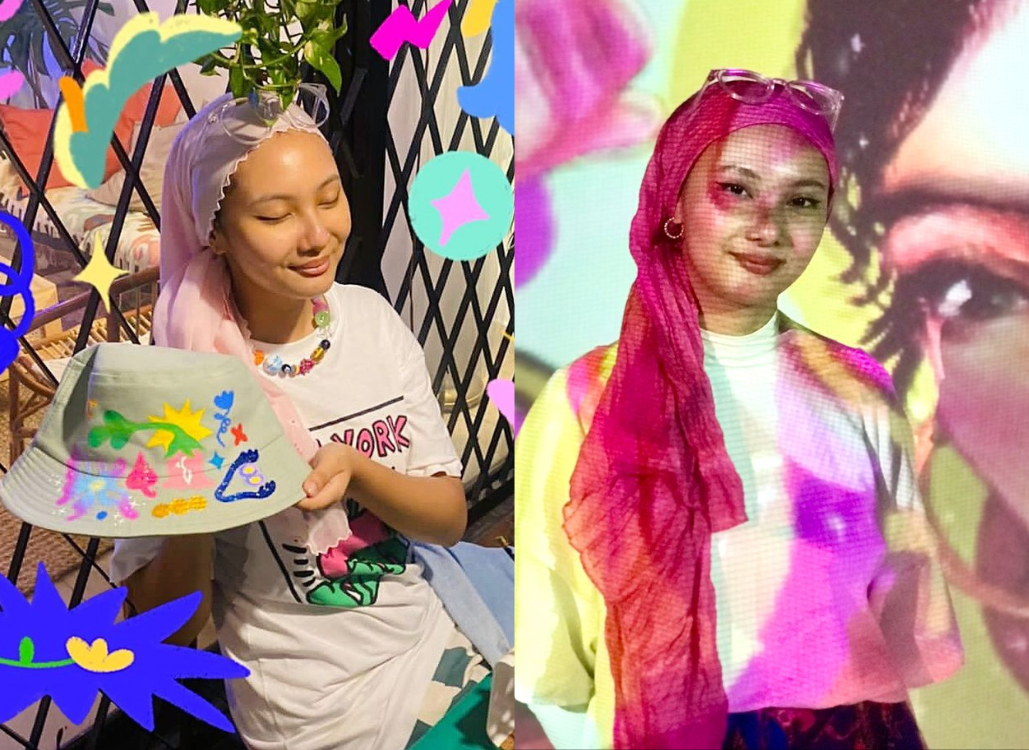"It's Not For Attention" — M'sian Youths Discuss The Challenges They Face As BPD Patients
"Some people have told me in the past that my BPD traits stem from me exaggerating things," said Aisyah.
In recent years, Malaysian youths have become more open about discussing mental health, particularly on social media, while also raising awareness about the importance of ending the stigma that has been placed on people with mental illnesses
Among the numerous mental conditions highlighted by the younger generation is Borderline Personality Disorder (BPD), a type of mental illness that severely impairs a patient's ability to regulate their emotions.
According to the National Institute of Mental Health (NIMH), this loss of emotional control can cause increased impulsivity and a negative self-image, as well as have an adverse effect on relationships with others.
Patients are also said to experience frequent intense mood swings, ranging from extreme dislike to extreme excitement, which affects how they perceive their emotions towards certain things or people.
"People with BPD also tend to view things in extremes, such as all good or all bad. Their interests and values can change quickly, and they may act impulsively or recklessly," the organisation wrote on its website.
These emotions can be overwhelming for many patients, leading to burnout because they are unable to control their feelings like most people around them.
To better understand how BPD affects Malaysian youths, SAYS interviewed a few patients to learn about some of the challenges they have had to face
Nur Aisyah Mohd Firdauz, a 20-year-old law student, was diagnosed with BPD when she was 18 years old, but still finds it difficult to explain the illness to certain people.
According to her, she found it especially difficult to explain BPD to her parents, who initially struggled to understand the symptoms.
"It was difficult to explain the illness to certain people like my parents because it was hard for them to understand what BPD is, but with my close friends, it was not that difficult, as they're aware of the illness.
"However, because I have the illness, I have had to face judgements. Some people have told me in the past that my BPD traits stem from me exaggerating things," she explained.
When asked about misconceptions regarding BPD, Nurul Eliana, 22, said that many people confuse it with bipolar disorder
"I've met a lot of people who thought bipolar disorder was the same as BPD, but it's not. Even though they're different, what I want people to understand is that they are extremely difficult to live with and, in some cases, can be fatal.
"BPD patients are very impulsive, and we act in ways that may overwhelm others. However, once you understand the diagnosis and symptoms, it makes a lot of sense in terms of how we react to certain things," Eliana explained.
Meanwhile, Adlyn Sofea, a 24-year-old artist, told SAYS that a friend had said to her that BPD patients struggle to plan for marriage or get into relationships, which made her feel demotivated.
"It demotivated me back then because I believed what they said was true because my mood swings had a significant impact on my well-being. Later on, I learned that there will be times when it feels like it's not worth it to commit, but that way of thinking can be improved with the right tools and support system," Adlyn added.
Adlyn also said that her personality disorder has negatively impacted her relationships with those around her
The artist shared that BPD is still affecting her current relationship, leading her to believe that her partner must sometimes prepare himself mentally before trying to face her symptoms.
"Sometimes, when we have a misunderstanding or disagreement, I will always be the first to suggest to end the relationship. My intense fear of abandonment has harmed my relationship because I have felt the need to leave before my partner can hurt me.
"I always feel like an empty shell next to him because I consider him to be a very healthy person. I'm always insecure if I'm too unstable, and it sometimes feels like he has to spend more time taking care of me than himself," Adlyn told SAYS.
She went on to say that she is also afraid of being perceived as an inept partner in her romantic relationship.
In addition, SAYS also asked respondents if BPD has an impact on their career and work life
24-year-old JUICE and SAYS content writer, Aqasha Nalani Nur'aiman, shared that her inability to control extreme emotions has affected her productivity and workflow.
"It's extremely difficult to create content as a creative when you're feeling very down, and it doesn't help that we don't always know how long we'll feel that way. We have medications that can help calm our anxiety quickly, but emotions like sadness can last for a very long time.
"I also feel guilty when I am unable to complete a task because of these volatile emotions. I can't help but feel like I'm not a reliable colleague, and that I'm not good enough to be where I am today," said Aqasha.
Despite her fluctuating emotions, the content writer went on to say that she is still trying her hardest to stay motivated and see life through a positive lens.
"I've had BPD for six years, but with the help of therapy, medication, and the support system I have in my life, I've seen myself getting better at controlling my feelings. It wasn't always easy when I was younger, but I believe things will only get better from here on out," Aqasha added.
All the respondents also hope that Malaysians will become more aware of BPD symptoms, and will refrain from criticising those who are dealing with them on a daily basis
"I want people to know that having BPD is a real struggle, and we're not doing this for attention. I want people to see how hard we are working to control our emotions and become better people.
"Aside from that, I wish there was more knowledge and exposure on how BPD works because it is perplexing to people who have never heard of it. I would also like to see clinical treatment for BPD become more accessible and affordable," said Adlyn.
Meanwhile, Aisyah hopes that the public will stop romanticising mental illnesses such as BPD because patients face real-life challenges that can jeopardise their livelihood.
"I want people to know that having BPD is not something 'cool' or 'quirky' like what people romanticise on the Internet," she concluded.
Interested to learn more about the characteristics of BPD? Check out this interview between MedCircle and Dr Ramani Durvasula, in which they sit down and discuss BPD symptoms:
Asking for help is not a sign of weakness.
If you or anyone you know is lonely, distressed, or having negative thoughts, please call these Malaysian hotlines:
1. BEFRIENDERS KL
24-hour
Contact: +603-76272929
Email: [email protected]
Website | Facebook | Twitter
2. TALIAN KASIH
24-hour
Contact: 15999
WhatsApp: +6019-2615999
Email: [email protected]
Website | Facebook
3. BUDDY BEAR CHILDLINE
Daily (12pm - 12am)
Contact: 1800-18-2327
Email: [email protected]
Facebook | Instagram
For a more thorough directory of resources, head over to the websites of Malaysian Mental Health Association or MINDAKAMI.




